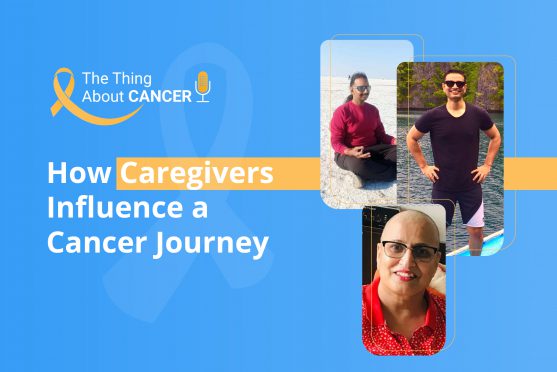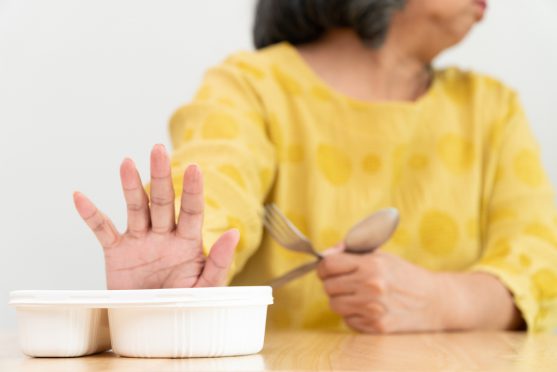Being the primary caregiver of a cancer patient can be a lot of work. Juggling different responsibilities like work, children and home while also taking care of a loved one with cancer can be overwhelming.
It is natural for caregivers to feel stressed, anxious, overworked and tired all the time. Not being able to take the time for self-care can often lead to a burnout. This is especially true when caregivers do not have anyone else who can share the emotional and financial responsibilities with them.

As a consequence of this situation, caregivers often end up expressing negative thoughts around the cancer patient. This can have a devastating effect as the patients are themselves in a vulnerable position emotionally, owing to their diagnosis and treatment.
In this episode of The Thing About Cancer, we look at how the words and attitudes of caregivers helped motivate cancer patients.
If you are a caregiver who is struggling with this responsibility, you may not find it easy to stay positive or to keep motivating your loved one with cancer. We look at some ways in which you can be a positive influence on the cancer patient in your care.
-
Know Your Limits
In a difficult situation like cancer, you may be tempted to take up more than you can manage. You want to provide the best care for your loved one and this might require you to stretch yourself to the maximum. Depriving yourself of sleep, peaceful meal times, or self-care, might feel like an avoidable part of your life as a caregiver.
However, ignoring your own needs for an extended period of time, might make you very irritable and unhealthy. A sick, or frustrated person can barely make a good caregiver. It is in everyone’s best interests that you ensure that your own physical, mental and emotional needs are also met.

Taking care of yourself might look like this:
- Requesting a family member or friend to help you out with the caregiving when you are tired
- Allowing yourself time to take a walk, take a nap, take up a hobby, or do something that can give you a short, daily break from your caregiving tasks
- Speaking to a trusted friend when you need to talk about matters that are bothering you
- Speaking to a counsellor when you are unable to manage your emotions on your own.
-
Know the side-effects of cancer treatment
You may already know that cancer treatment can cause hair fall, and weight changes in the patients. The lesser known side-effects tend to be emotional in nature.
Cancer patients tend to be more susceptible to depression and anxiety. They might express negative thoughts about their treatment, and sometimes even about their caregiver.
Understanding that this kind of behavior is due to their illness, will help you detach yourself from it. Taking the negative comments personally may make you feel unappreciated.
Similarly, cancer patients develop an aversion towards food and might find carefully prepared meals tasteless. Again, this is a reflection of their illness and not a reflection of your efforts at providing those meals.

-
Understanding the treatment
Cancer treatment has come a long way. Today, many more cancer patients survive and enjoy a better quality of life when compared to survival rates from a few years back.
Often friends and family may provide anecdotal evidence about how cancer treatment may not have worked out for someone they know. Try to avoid such conversations as they de-motivate both you and the patient.
Speak to your oncologist and find out as much as you can about the diagnosis and the treatment. Understand how long it will take, what procedures will have to be undergone and what the possible outcomes will be.
Knowing what to expect will help you be better prepared for each step of the treatment.

-
Accept the bad days
In spite of your best efforts, there will be days when you say or do things you wish you hadn’t. That is a consequence of being human and instead of beating yourself about it, it might help to accept that there will be bad days.
It might help you to speak with other caregivers who have gone through similar situations as you. Cancer communities can connect you with such others who can provide a better perspective of your situation.
Onco.com’s community includes cancer caregivers. If you would like to interact with them, you can email community@onco.com. You can also join our Facebook community to know about our upcoming events.

